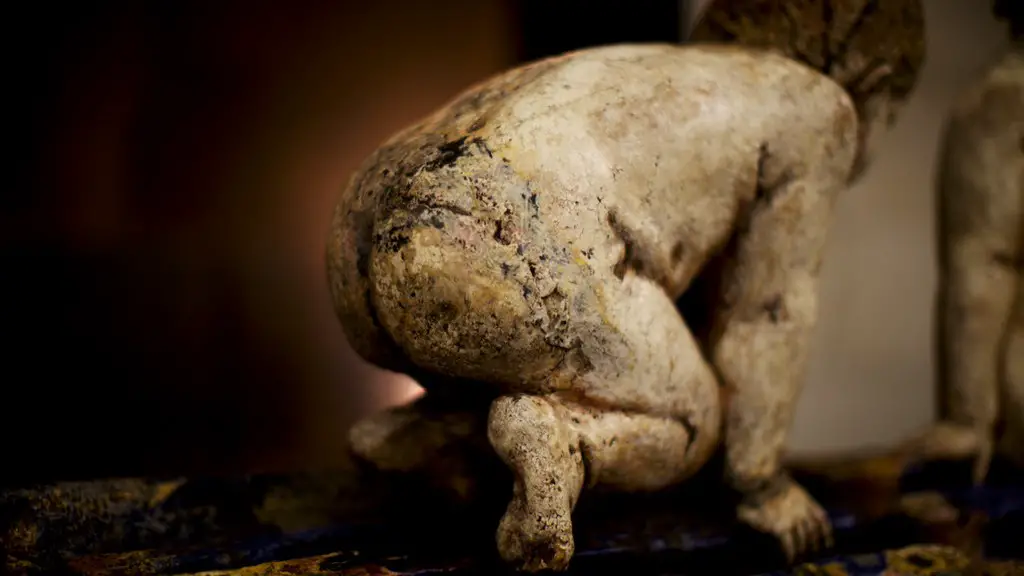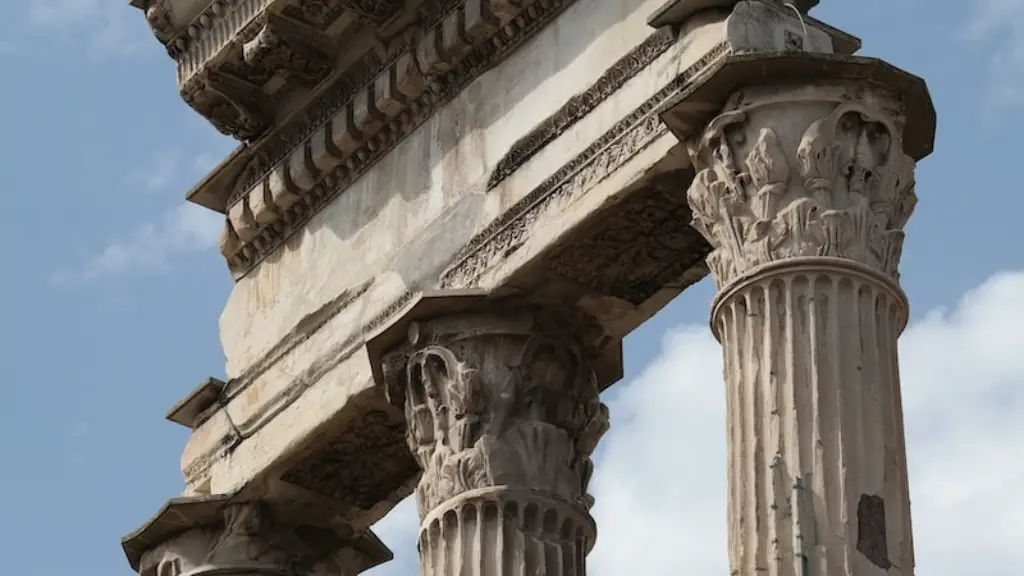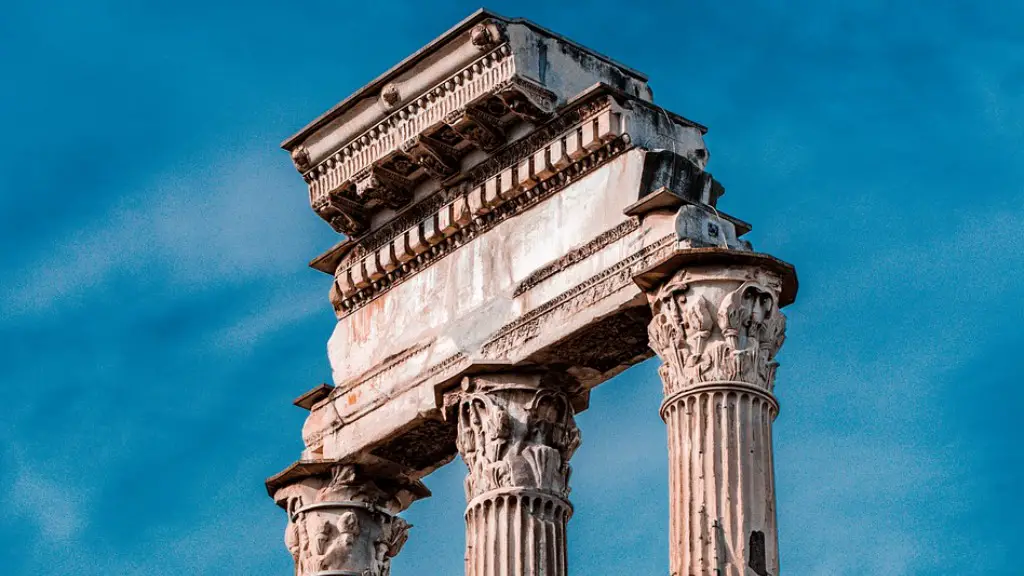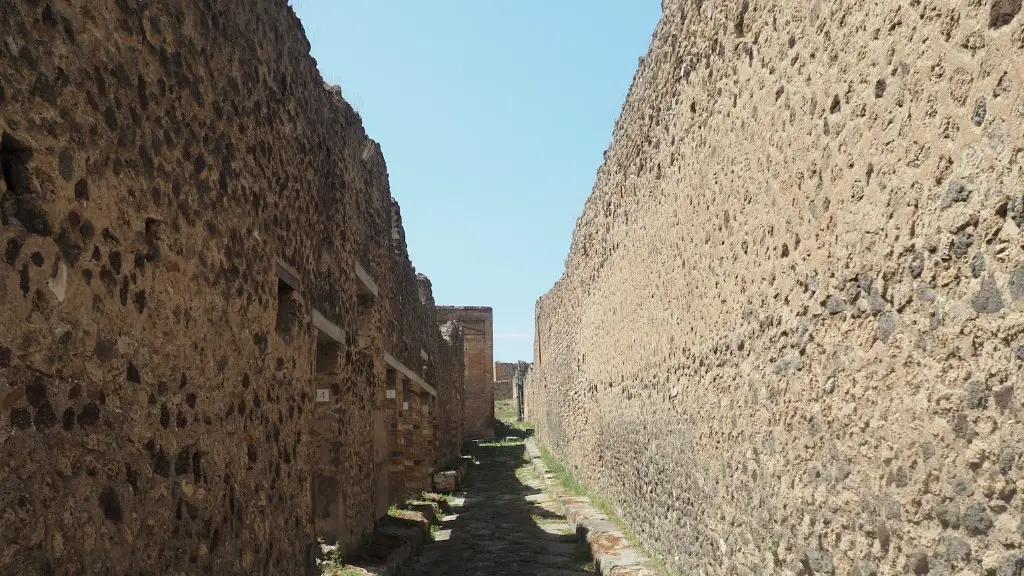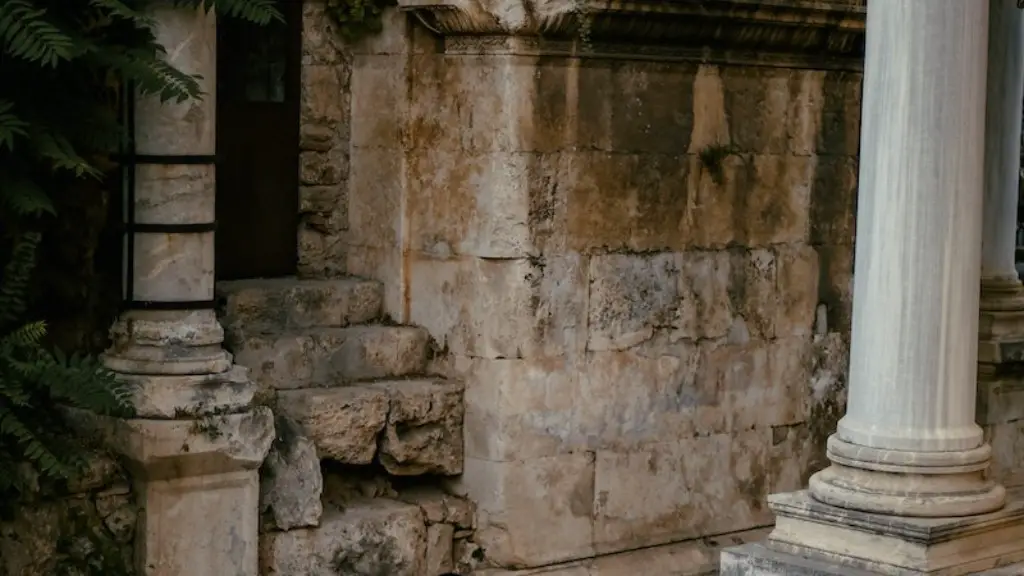Religion was a major part of the ancient societies of Rome and Greece. It was an integral part of both their culture and their daily lives, and played a crucial role in their decision making. This article will explore why religion was so important in these ancient societies, looking at its significance in various aspects of life and culture, including politics and war.
One reason why religion was so important in Rome and Greece was that it provided a moral and spiritual framework for their societies, and was the main source of meaning. Religion offered guidance on how to act and think, and was the basis of the laws and customs of the time. Furthermore, religion helped to provide social cohesion, bringing people together and producing a shared sense of identity.
In addition, religion was an important part of Rome and Greek culture, influencing art, literature, and other forms of expression. Religion was used to pay homage to gods and goddesses, and was an essential element in storytelling and mythology. It also drove much of the politics of the time, with rulers claiming to be divinely ordained, and using religion as a tool for manipulating power.
Religion was also a source of comfort in times of hardship, offering hope and purpose in difficult times. In Rome and Greece, the gods and goddesses were seen as sources of strength and protection, and were relied upon in times of crisis. People turned to them for help, believing that they could intercede and answer prayers. They were also sources of inspiration, providing models for morality and behavior.
Finally, religion was an integral part of both Roman and Greek warfare. Armies went into battle with divine protection, believing that their gods and goddesses would give them the strength and courage to fight. Religion was also used to intimidate enemies, with triumphant armies proclaiming their victory was the result of divine intervention. Religion was used in this way to show the power and invincibility of one’s own gods and goddesses, and also to demonstrate one’s own power and authority.
Religion and Civic Life
Religion was also important in the civic life of both Rome and Greece. Religion was used as a way to link the people to the state and rulers. Rulers often called on religious and symbolic terms to explain the reasons behind their decisions. Religion was also used to legitimise laws, with punishments for those who broke them being based on religious principles.
Religion also played an important role in religious festivals and ceremonies. These were an important way for people to celebrate and give thanks to the gods, often for bountiful crops or victory during war. The festivals were also an important way for people to come together, strengthen their sense of community, and pay homage to the gods.
Moreover, in both Rome and Greece temples were a way of honouring the gods. Temples served as places of refuge, prayer, and official business. They were also places to hold rituals, festivals and ceremonies that strengthened their bond with the gods. They also served as a means of building social structures and ties, with people coming together in a common space to honour their gods.
Finally, religion was important for divination. Divination was a way of receiving advice from the gods and interpreting their will, and was a major part of both Roman and Greek societies. Priests and oracles were consulted in order to uncover the divine will, and this was often seen as more credible than the opinions of mere mortals.
Religion and Social Life
Religion was also essential in the social life of ancient Rome and Greece, providing a common ground for the people. It served as a way to connect people to each other through shared beliefs and rituals, helping to foster social cohesion. Religion was also a way to understand the world and the way it worked, and a source of inspiration, comfort, and guidance in times of difficulty.
Moreover, religion was an important element in the festivals and celebrations of the two cultures, as well as in their stories and myths. It was a source of solace and connection, helping to unify the people in times of hardship and allowing them to celebrate in times of joy. Religion offered a way to understand the events of the world and the way it worked, as well as a way to find peace and comfort.
Finally, religion was used to reinforce social values, helping to shape and guide the people’s behaviour. Religion served as a way to explain societal expectations, and provided justification and meaning for customs and laws. It also helped to guide the way people acted, think, and behaved, helping to create a sense of social order and unity.
Religion and Personal Development
In addition, religion was an important part of the personal development of both Roman and Greek individuals. For example, religion was an important part of coming of age rituals, such as those seen in the ancient Greek ceremonies of the ephebe. It was also used to signify the change into adulthood, and to reinforce the beliefs and customs of the time. Religion was also used as a way to understand the world, to make sense of one’s experiences, and to find meaning and purpose in life.
Furthermore, religion was a source of comfort and a way of dealing with difficult emotions. People relied on the gods and goddesses for guidance and protection, and turned to them for answers in times of hardship. Religion provided hope and purpose, and served as a source of strength in times of difficulty. It allowed individuals to find solace in difficult situations, and to cope with the various hardships and struggles of life.
Finally, religion served as a way to explain natural phenomena and events. People used religion to try to make sense of the world, and to find meaning and understanding in the mystery of life. Through it they could find a way to cope with the unknown, and to come to terms with life’s ups and downs.
Religion in Everyday Life
Religion was pervasive in the daily lives of both Rome and Greece, playing an essential role in all aspects of life. People believed that the gods and goddesses guided them, offering protection and wisdom. Religion was used as a way to make sense of the world, and to find solace in times of distress. It was also an important source of comfort, allowing individuals to cope with hardships and find peace in difficult times. It helped to shape values, customs, and beliefs, and also to unite people together by providing a shared sense of identity.
Moreover, religion was an important part of storytelling and mythology, providing a way to make sense of the world by explaining its mysteries and providing models for morality and behavior. It was also an integral part of the culture and art, with gods and goddesses featuring prominently in artwork, literature, and expression. Religion was used to pay homage to the gods, and to seek their approval and intervention in times of crisis.
Finally, religion was an important part of politics, providing a source of legitimacy and power. It was used as a tool for manipulating power, with rulers claiming to be divinely ordained, and using religion as a way to gain the confidence of the people. Religion was also used as a way of intimidating enemies and proclaiming victory in times of war.
Conclusion
In conclusion, religion was an integral part of ancient Rome and Greece and played an important role in all aspects of life. Religion provided moral and spiritual guidance, as well as a source of comfort and solace in difficult times. It was also used as a way to legitimise laws and rulers, to reinforce social values and customs, and to offer a sense of identity and understanding. Moreover, religion was an important part of culture, art, and expression, as well as in warfare and politics. Finally, it was an essential part of coming of age rituals, and in providing an explanation to the mysteries of life and the world.
